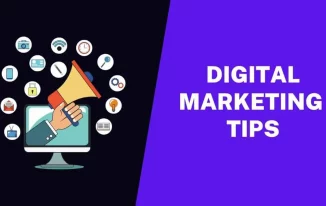You do not need to be an SEO expert to succeed in the writing industry. Even a basic SEO strategy for authors can assist you in increasing the number of books you sell. The trick to SEO for writers is not to spend years studying the subtleties of manipulating it to your advantage but rather to spend time writing about it.
Be aware that millions of people use search engines like Google, Bing, and others regularly and that this number is growing. Search engine optimization (SEO) helps your book promotion efforts when your content appears in search results.
Here are some ways you can swiftly promote your self-publishing book with the help of SEO.
Discoverability
Bookstore shelf presence and direct access to significant print media venues for reviews assist many traditionally released items. Self-published writers must make up for this by concentrating their book marketing efforts on Internet discoverability.
If you are confused, you can get your custom book printing done by agencies. That will help you save an ample amount of time.
Ensure your listing is well-written and contains a wide range of relevant search terms. In addition, make sure that your book is included under every relevant category. Your author page has the potential to be a potent tool for promoting your book.
Use SEO-relevant keywords on your website, and update your blog at least twice or three times every week. Be sure to include both internal and external linkages and employ searchable SEO keywords to do so.
Google rates websites and blogs on various factors, including keyword relevance and internal and external links. Self-published authors need to make use of the Internet's marketing potential.
High-Quality Content
Over time, Google's algorithms have changed. When someone searches for anything, they are continually modified to provide the best possible results. Using Google's algorithm, they have become the leading search engine.
You have an advantage since you are a writer. You will not only keep your visitors coming back, but search engines will reward you for your efforts. Your blog should be updated often. You should ensure that your postings are helpful, topical, and amusing.
Make Your Book Appealing
Increasing numbers of authors are turning to self-publishing and marketing books as a stepping stone to formal publication. Good novels get noticed by agents and publishers, and those self-published writers who have demonstrated their worth are offered contracts.
Good sales figures and media coverage are sure to draw attention. An agent or publisher's curiosity will be piqued if a query letter includes newspaper clippings and highlights of media coverage.
Descriptions and Titles
In Google, when you type in a search term and get a list of results, you do not see the page's title. Instead, you will get a meta description and title optimized for search engine optimization (SEO). Jane Friedman's site provides an example of a one-sentence description that entices you to click on the content.
People who visit your site via a search will see them, even if they are not shown on the page itself. They are critical in helping Google discover your site. If you do not do this, Google will use the post or page title and the first few words of the description instead, which will make it harder for people to find your material.
To improve your search engine ranks and the number of visitors who click on your site, you can use an SEO plugin for WordPress to set these up for each page or article.
Social Media
In the first place, keep your author's social media accounts up to date. Incomplete or out-of-of-date financial statements provide a terrible first impression. Social media is a great way to spread the word about interviews and articles about you or your book. Do not only provide a link to a radio interview on your website or blog; tweet about it as well.
Also, keep in mind that whatever you do or say on the Internet is a public record. Increased exposure on social media can help search engines locate your book. Your website's rating will rise along with your book's visibility in search engine results.
Use Articles and Interviews
When a producer or editor hears or reads about self-published books and writers from another media source, they are generally fascinated. For example, an article in your local newspaper should be shared with other media outlets.
Send them a copy of the narrative and explain why you are a good storyteller. Send a link to your interview to a major media producer if featured on a tiny radio talk program.
As far as most TV show producers go, they want to see a possible interviewee on-air before scheduling a sit-down. You can land several local TV interviews to show that you can conduct yourself on the air and be a good guest.
As you know, there are only so many columns in a newspaper or magazine, and there are only so many minutes of airtime in a radio or TV news or feature program. They do not care whether you have already been interviewed elsewhere when interviewing someone.
Mobile-Friendly Websites
Because Google despises websites that are not mobile-friendly, it penalizes them. Responsive design implies that the layout adapts to multiple screen sizes.
Any website system or theme should be checked for responsiveness before it is put to use. Do not use it if it is not appropriate. Google has made it clear that sites not optimized for mobile devices will be penalized in search results. Your SEO will take a hit, and you will alienate most consumers who access the Internet through their mobile devices.
Conclusion
Search engine optimization (SEO) can help you reach a bigger audience and increase your visibility. This can be an essential strategy for finding new readers and is worth the effort for nonfiction authors.
For fiction authors, getting the fundamentals right will not significantly impact sales, but it is still worthwhile. As a writer, you already have an edge since Google places a high value on high-quality content. Good Luck!





